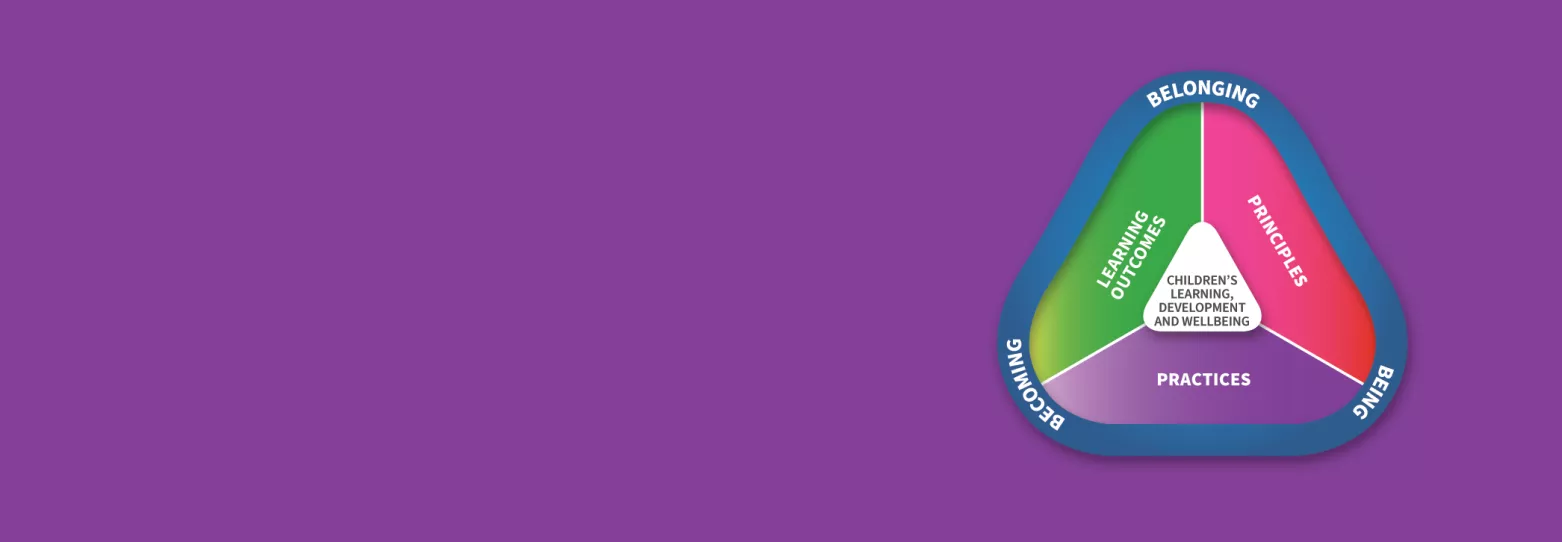- Home
- BELONGING, BEING & BECOMING - THE EARLY YEARS LEARNING FRAMEWORK
- (EYLF) PRACTICES
Table of contents
- BELONGING, BEING & BECOMING - THE EARLY YEARS LEARNING FRAMEWORK
- (EYLF) INTRODUCTION
- (EYLF) A VISION FOR CHILDREN'S LEARNING
- (EYLF) ELEMENTS OF THE EARLY YEARS LEARNING FRAMEWORK
- (EYLF) EARLY CHILDHOOD PEDAGOGY
- (EYLF) PRINCIPLES
-
(EYLF) PRACTICES
- (EYLF) Holistic, integrated and interconnected approaches
- (EYLF) Responsiveness to children
- (EYLF) Play-based learning and intentionality
- (EYLF) Learning environments
- (EYLF) Cultural responsiveness
- (EYLF) Continuity of learning and transitions
- (EYLF) Assessment and evaluation for learning, development and wellbeing
- (EYLF) THE EARLY YEARS LEARNING FRAMEWORK PLANNING CYCLE
- (EYLF) LEARNING OUTCOMES
- (EYLF) GLOSSARY OF TERMS
- (EYLF) REFERENCES
Need help using the guide? Visit our help section.
(EYLF) PRACTICES

The Principles of early childhood pedagogy underpin practice. Educators draw on a rich repertoire of pedagogical practices to inform curriculum for children’s learning, development and wellbeing by:
- adopting holistic approaches
- being responsive to children
- planning and implementing play-based learning with intentionality
- creating physical, temporal, intellectual, social and emotional environments
- valuing the cultural and social contexts of children and their families
- providing for continuity in experiences and enabling effective transitions
- analysing, assessing, monitoring and evaluating children’s learning, development and wellbeing in ways to understand, acknowledge and document children’s progress and their achievement of Learning Outcomes.